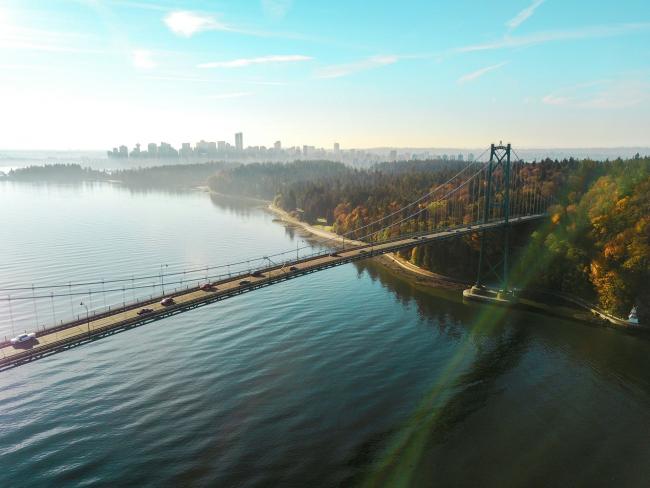Articles Menu

Nov. 13, 2025
Vancouver has long been recognized as a global leader in sustainability, a city that others look to for bold environmental action and progressive urban governance. Which is why the reported proposal by Mayor Ken Sim to eliminate or significantly weaken Vancouver’s climate and sustainability department is not just concerning — it is dangerously short-sighted.
We are living through what scientists call the decisive decade for humanity. Global temperatures have already risen more than 1.3 degrees C above pre-industrial levels, and we are on track to surpass 1.5 C by the early 2030s. These are not distant forecasts. British Columbia has already endured lethal heat domes, catastrophic flooding and wildfire smoke that chokes our cities and strains our health systems.
The city’s climate and sustainability department is not symbolic; it is the backbone of Vancouver’s efforts to build a resilient and responsible future. Cities consume 78 per cent of the world’s energy and produce more than 60 per cent of global greenhouse gas emissions. In Canada, municipal governments have direct or indirect control over approximately 44 per cent of Canada’s greenhouse gas emissions. Vancouver’s climate and sustainability department is the institutional nerve centre for the city, ensuring that every unit — from transportation and housing to waste, infrastructure and planning — aligns with and is held accountable for the city’s emissions targets and resilience goals.
Cities that succeed in the climate era have one thing in common: clear institutional capacity. Dismantling that capacity doesn’t improve efficiency — it undermines foresight, readiness and accountability.
If this move is being justified as fiscal prudence, then Mayor Sim is misunderstanding the economics of climate change. Every dollar invested in climate mitigation and adaptation today saves multiple dollars in avoided disaster costs tomorrow.
We are not living in an era of optional climate policy. We are living in an era of planetary limits where the choices we make in city halls will determine the world our children inherit, @carolmliao.bsky.social and @naomiaklein.bsky.social write. Blue Sky
The Insurance Bureau of Canada has already warned that climate-related damage claims are rising exponentially, costing Canadians billions annually, with 2024 shattering the record for the costliest year in Canadian history for severe weather-related losses. More resilient infrastructure and better adaptation measures can help manage these growing costs. Failing to plan for climate risk now will leave Vancouver’s taxpayers footing a far greater bill later — in emergency response, damaged infrastructure and public health crises.
Cutting the City’s climate and sustainability department is not a savings measure; it’s a deferred-cost strategy with devastating consequences.
Vancouver’s reputation as a sustainability leader was built over decades of effort. When Vancouver’s Greenest City Action Plan wrapped up in 2020, we only hit eight of the 18 targets, but we were heralded for our efforts, which had ripple effects well beyond the city. The city then developed a Climate Emergency Action Plan covering land use planning, transportation and buildings, as well as a Climate Change Adaptation Strategy, addressing the community’s key climate risks, present and future.
These efforts have brought tangible benefits. Our climate leadership attracts global partnerships, research investments and green industries that bolster our economy. Dismantling this reputation jeopardizes those gains.
It would also put the city out of step with Canada’s commitments under the Paris Agreement and the UN Sustainable Development Goals. In an age when every major urban centre is being called to action, retreat is not an option for a world-class city.
Hundreds died from extreme heat during a heat dome event in British Columbia in 2021; the majority of those were adults over 70 years of age. Climate change is not an equal-opportunity crisis. The worst impacts fall disproportionately on seniors, renters, people in precarious housing, low-income families and Indigenous and racialized communities. The city’s sustainability department has been key in ensuring climate policy integrates equity, reconciliation, and justice. Eliminating this capacity would silence the very expertise ensuring that our most vulnerable are not left behind.
We are not living in an era of optional climate policy. We are living in an era of planetary limits where the choices we make in city halls will determine the world our children inherit.
Vancouver has been a beacon of urban sustainability. While cities worldwide are expanding their climate capacity to protect citizens and attract sustainable growth, Vancouver is being asked to dismantle its own. That is not leadership. That is abdication. Vancouver can, and must, do better.
[Top photo: Vancouver has long been recognized as a global leader in sustainability, a city that others look to for bold environmental action and progressive urban governance. Photo by: Lee Robinson / Unsplash]